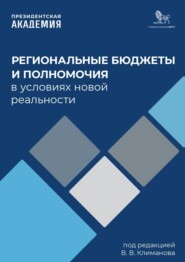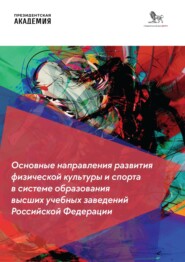По всем вопросам обращайтесь на: info@litportal.ru
(©) 2003-2024.
✖
Lords of the Housetops: Thirteen Cat Tales
Настройки чтения
Размер шрифта
Высота строк
Поля
"If," she stormed, crimson of countenance, and threatening Espérance with her fist, "if you must entice my cat from her home, at least I will thank you not to give her food. I provide all that is necessary; and, for the rest, how do I know what is in that saucer?"
And she surveyed the duck-clad assistants and the astounded customers with tremendous scorn.
"You others," she added, "I ask you, is it just? These people take my cat, and feed her —feed her – with I know not what! It is overwhelming, unheard of – and, above all, now!"
But here the peaceful Hippolyte played trumps.
"It is the privilege of the vulgar," he cried, advancing, razor in hand, "when they are at home, to insult their neighbours, but here – no! My wife has told me of you and of your sayings. Beware! or I shall arrange your affair for you! Go! you and your cat!"
And, by way of emphasis, he fairly kicked Zut into her astonished owner's arms. He was magnificent, was Hippolyte!
This anecdote, duly elaborated, was poured into the ears of Abel Flique an hour later, and that evening he paid his first visit in many months to Madame Caille. She greeted him effusively, being willing to pardon all the past for the sake of regaining this powerful friend. But the glitter in the agent's eye would have cowed a fiercer spirit than hers.
"You amuse yourself," he said sternly, looking straight at her over the handful of raisins which she tendered him, "by wearying my friends. I counsel you to take care. One does not sell inferior eggs in Paris without hearing of it sooner or later. I know more than I have told, but not more than I can tell, if I choose."
"Our ancient friendship" – faltered Alexandrine, touched in a vulnerable spot.
" – preserves you thus far," added Flique, no less unmoved. "Beware how you abuse it!"
And so the calls of Zut were no longer disturbed.
But the rover spirit is progressive, and thus short visits became long visits, and finally the angora spent whole nights in the Salon Malakoff, where a box and a bit of carpet were provided for her. And one fateful morning the meaning of Madame Caille's significant words "and above all, now!" was made clear.
The prosperity of Hippolyte's establishment had grown apace, so that, on the morning in question, the three chairs were occupied, and yet other customers awaited their turn. The air was laden with violet and lilac. A stout chauffeur, in a leather suit, thickly coated with dust, was undergoing a shampoo at the hands of one of the duck-clad, and, under the skilfully plied razor of the other, the virgin down slid from the lips and chin of a slim and somewhat startled youth, while from a vaporizer Hippolyte played a fine spray of perfumed water upon the ruddy countenance of Abel Flique. It was an eloquent moment, eminently fitted for some dramatic incident, and that dramatic incident Zut supplied. She advanced slowly and with an air of conscious dignity from the corner where was her carpeted box, and in her mouth was a limp something, which, when deposited in the immediate centre of the Salon Malakoff, resolved itself into an angora kitten, as white as snow!
"Epatant!" said Flique, mopping his perfumed chin. And so it was.
There was an immediate investigation of Zut's quarters, which revealed four other kittens, but each of these was marked with black or tan. It was the flower of the flock with which the proud mother had won her public.
"And they are all yours!" cried Flique, when the question of ownership arose. "Mon Dieu, yes! There was such a case not a month ago, in the eighth arrondissement – a concierge of the avenue Hoche who made a contrary claim. But the courts decided against her. They are all yours, Madame Sergeot. My felicitations!"
Now, as we have said, Madame Sergeot was of a placid temperament which sought not strife. But the unprovoked insults of Madame Caille had struck deep, and, after all, she was but human.
So it was that, seated at her little desk, she composed the following masterpiece of satire:
Chère Madame, – We send you back your cat, and the others – all but one. One kitten was of a pure white, more beautiful even than its mother. As we have long desired a white angora, we keep this one as a souvenir of you. We regret that we do not see the means of accepting the kind offer you were so amiable as to make us. We fear that we shall not find time to shampoo your cat, as we shall be so busy taking care of our own. Monsieur Flique will explain the rest.
We pray you to accept, madame, the assurance of our distinguished consideration,
Hippolyte and Espérance Sergeot.
It was Abel Flique who conveyed the above epistle, and Zut, and four of Zut's kittens, to Alexandrine Caille, and, when that wrathful person would have rent him with tooth and nail, it was Abel Flique who laid his finger on his lip, and said, —
"Concern yourself with the superior kitten, madame, and I concern myself with the inferior eggs!"
To which Alexandrine made no reply. After Flique had taken his departure, she remained speechless for five consecutive minutes for the first time in the whole of her waking existence, gazing at the spot at her feet where sprawled the white angora, surrounded by her mottled offspring. Even when the first shock of her defeat had passed, she simply heaved a deep sigh, and uttered two words, —
"Oh, Zut!"
The which, in Parisian argot, at once means everything and nothing.
Guy Wetmore Carryl.
A PSYCHICAL INVASION
I
"And what is it makes you think I could be of use in this particular case?" asked Dr. John Silence, looking across somewhat sceptically at the Swedish lady in the chair facing him.
"Your sympathetic heart and your knowledge of occultism – "
"Oh, please – that dreadful word!" he interrupted, holding up a finger with a gesture of impatience.
"Well, then," she laughed, "your wonderful clairvoyant gift and your trained psychic knowledge of the processes by which a personality may be disintegrated and destroyed – these strange studies you've been experimenting with all these years – "
"If it's only a case of multiple personality I must really cry off," interrupted the doctor again hastily, a bored expression in his eyes.
"It's not that; now, please, be serious, for I want your help," she said; "and if I choose my words poorly you must be patient with my ignorance. The case I know will interest you, and no one else could deal with it so well. In fact, no ordinary professional man could deal with it at all, for I know of no treatment or medicine that can restore a lost sense of humour!"
"You begin to interest me with your 'case,'" he replied, and made himself comfortable to listen.
Mrs. Sivendson drew a sigh of contentment as she watched him go to the tube and heard him tell the servant he was not to be disturbed.
"I believe you have read my thoughts already," she said; "your intuitive knowledge of what goes on in other people's minds is positively uncanny."
Her friend shook his head and smiled as he drew his chair up to a convenient position and prepared to listen attentively to what she had to say. He closed his eyes, as he always did when he wished to absorb the real meaning of a recital that might be inadequately expressed, for by this method he found it easier to set himself in tune with the living thoughts that lay behind the broken words.
By his friends John Silence was regarded as an eccentric, because he was rich by accident, and by choice – a doctor. That a man of independent means should devote his time to doctoring, chiefly doctoring folk who could not pay, passed their comprehension entirely. The native nobility of a soul whose first desire was to help those who could not help themselves, puzzled them. After that, it irritated them, and, greatly to his own satisfaction, they left him to his own devices.
Dr. Silence was a free-lance, though, among doctors, having neither consulting-room, book-keeper, nor professional manner. He took no fees, being at heart a genuine philanthropist, yet at the same time did no harm to his fellow-practitioners, because he only accepted unremunerative cases, and cases that interested him for some very special reason. He argued that the rich could pay, and the very poor could avail themselves of organized charity, but that a very large class of ill-paid, self-respecting workers, often followers of the arts, could not afford the price of a week's comforts merely to be told to travel. And it was these he desired to help; cases often requiring special and patient study – things no doctor can give for a guinea, and that no one would dream of expecting him to give.
But there was another side to his personality and practice, and one with which we are now more directly concerned; for the cases that especially appealed to him were of no ordinary kind, but rather of that intangible, elusive, and difficult nature best described as psychical afflictions; and, though he would have been the last person himself to approve of the title, it was beyond question that he was known more or less generally as the "Psychic Doctor."
In order to grapple with cases of this peculiar kind, he had submitted himself to a long and severe training, at once physical, mental, and spiritual. What precisely this training had been, or where undergone, no one seemed to know, – for he never spoke of it, as, indeed, he betrayed no single other characteristic of the charlatan, – but the fact that it had involved a total disappearance from the world for five years, and that after he returned and began his singular practice no one ever dreamed of applying to him the so easily acquired epithet of quack, spoke much for the seriousness of his strange quest and also for the genuineness of his attainments.
For the modern psychical researcher he felt the calm tolerance of the "man who knows." There was a trace of pity in his voice – contempt he never showed – when he spoke of their methods.
"This classification of results is uninspired work at best," he said once to me, when I had been his confidential assistant for some years. "It leads nowhere, and after a hundred years will lead nowhere. It is playing with the wrong end of a rather dangerous toy. Far better, it would be, to examine the causes, and then the results would so easily slip into place and explain themselves. For the sources are accessible, and open to all who have the courage to lead the life that alone makes practical investigation safe and possible."
And towards the question of clairvoyance, too, his attitude was significantly sane, for he knew how extremely rare the genuine power was, and that what is commonly called clairvoyance is nothing more than a keen power of visualizing.
"It connotes a slightly increased sensibility, nothing more," he would say. "The true clairvoyant deplores his power, recognizing that it adds a new horror to life, and is in the nature of an affliction. And you will find this always to be the real test."
Thus it was that John Silence, this singularly developed doctor, was able to select his cases with a clear knowledge of the difference between mere hysterical delusion and the kind of psychical affliction that claimed his special powers. It was never necessary for him to resort to the cheap mysteries of divination; for, as I have heard him observe, after the solution of some peculiarly intricate problem —
"Systems of divination, from geomancy down to reading by tea-leaves, are merely so many methods of obscuring the outer vision, in order that the inner vision may become open. Once the method is mastered, no system is necessary at all."
And the words were significant of the methods of this remarkable man, the keynote of whose power lay, perhaps, more than anything else, in the knowledge, first, that thought can act at a distance, and, secondly, that thought is dynamic and can accomplish material results.

















